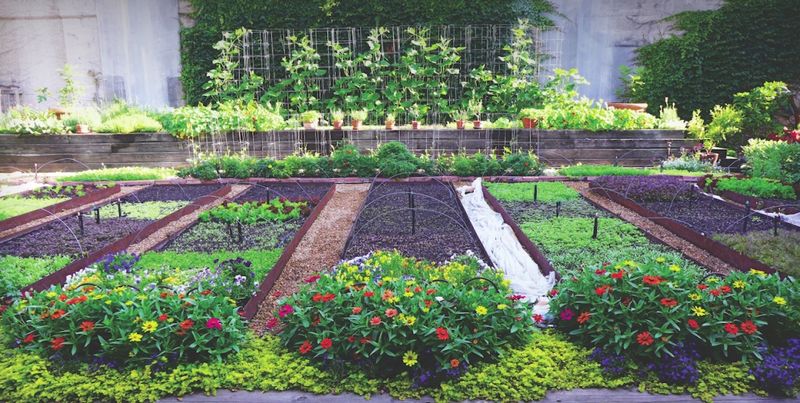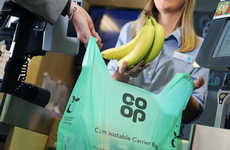
Bayless Organic Gardens Focuses on Creating Sustainable Urban Food
References: rickbayless & rickbayless
Chef Rick Bayless created the 'Bayless Organic Gardens' and it highlights progressive approaches to growing food. He creates a selection of menu items that stem from his culinary approach of urban food production and preserving organic freshness.
Located in Chicago, guests are able to take a tour of his luscious edible organic garden, measuring out to be 1,000 square feet. It features 13 raised planter beds that grow herbs, edible flowers, and salad greens, all of which directly go straight to Chef Rick's restaurants. The garden beds grow for 8 months throughout the year, which actively produce 250 pounds of herbs, 100 pounds of butternut squash, 700 pounds of salad greens, and 65,000 edible flowers. During the colder seasons, the production takes its course indoors in a heated greenhouse.
Located in Chicago, guests are able to take a tour of his luscious edible organic garden, measuring out to be 1,000 square feet. It features 13 raised planter beds that grow herbs, edible flowers, and salad greens, all of which directly go straight to Chef Rick's restaurants. The garden beds grow for 8 months throughout the year, which actively produce 250 pounds of herbs, 100 pounds of butternut squash, 700 pounds of salad greens, and 65,000 edible flowers. During the colder seasons, the production takes its course indoors in a heated greenhouse.
Trend Themes
1. Sustainable Urban Food - The trend of sustainable urban food production opens up opportunities for innovative approaches to growing and preserving organic freshness.
2. Edible Organic Gardens - The trend of creating edible organic gardens provides opportunities for businesses to offer unique experiences and farm-to-table concepts.
3. Urban Farming - The trend of urban farming presents disruptive innovation opportunities in terms of maximizing space and efficiency for food production in cities.
Industry Implications
1. Restaurant and Hospitality - The restaurant and hospitality industry can benefit from incorporating edible organic gardens into their establishments to provide fresh, locally-sourced ingredients for their menus.
2. Agriculture and Farming - The agriculture and farming industry can explore new methods and technologies to support sustainable urban food production and meet the growing demand for organic food.
3. Eco-tourism - The eco-tourism industry can tap into the trend of edible organic gardens by offering tours and experiences at urban farms, attracting visitors interested in sustainable food practices.
5.6
Score
Popularity
Activity
Freshness























